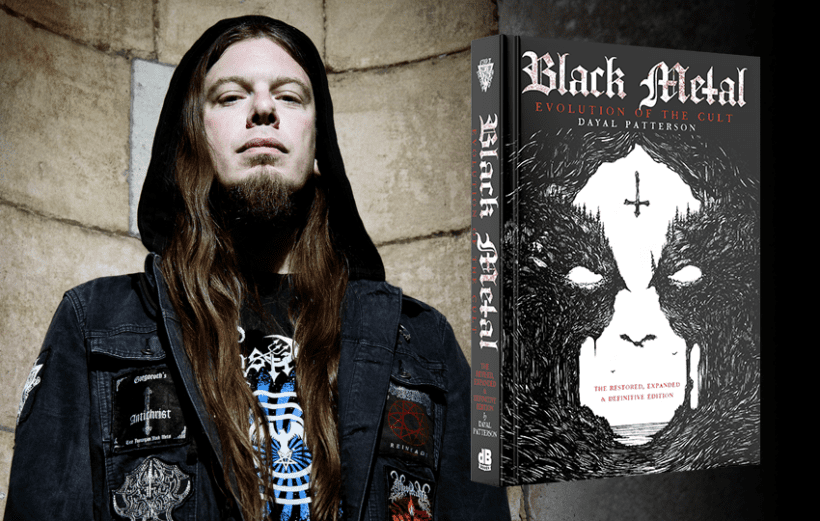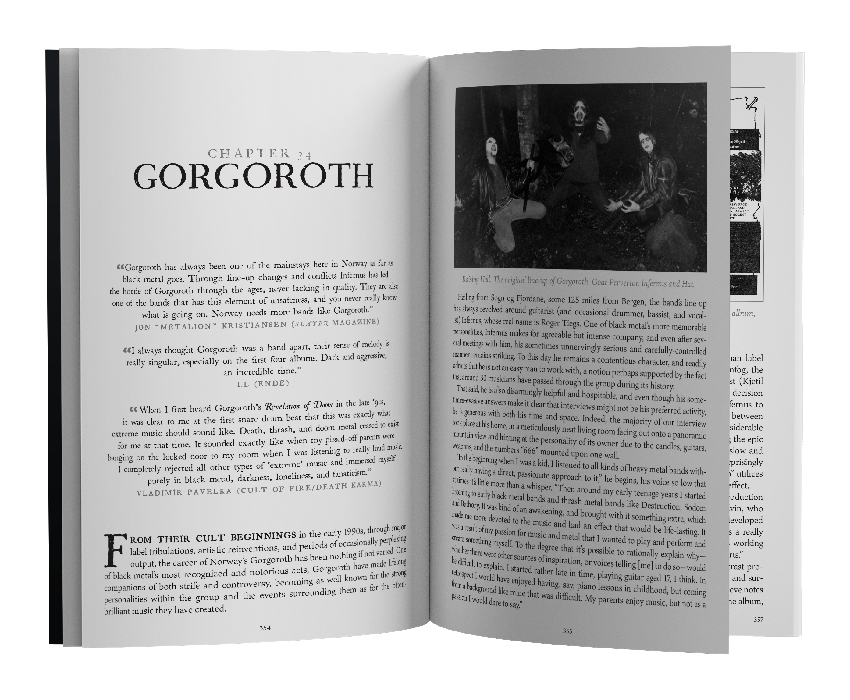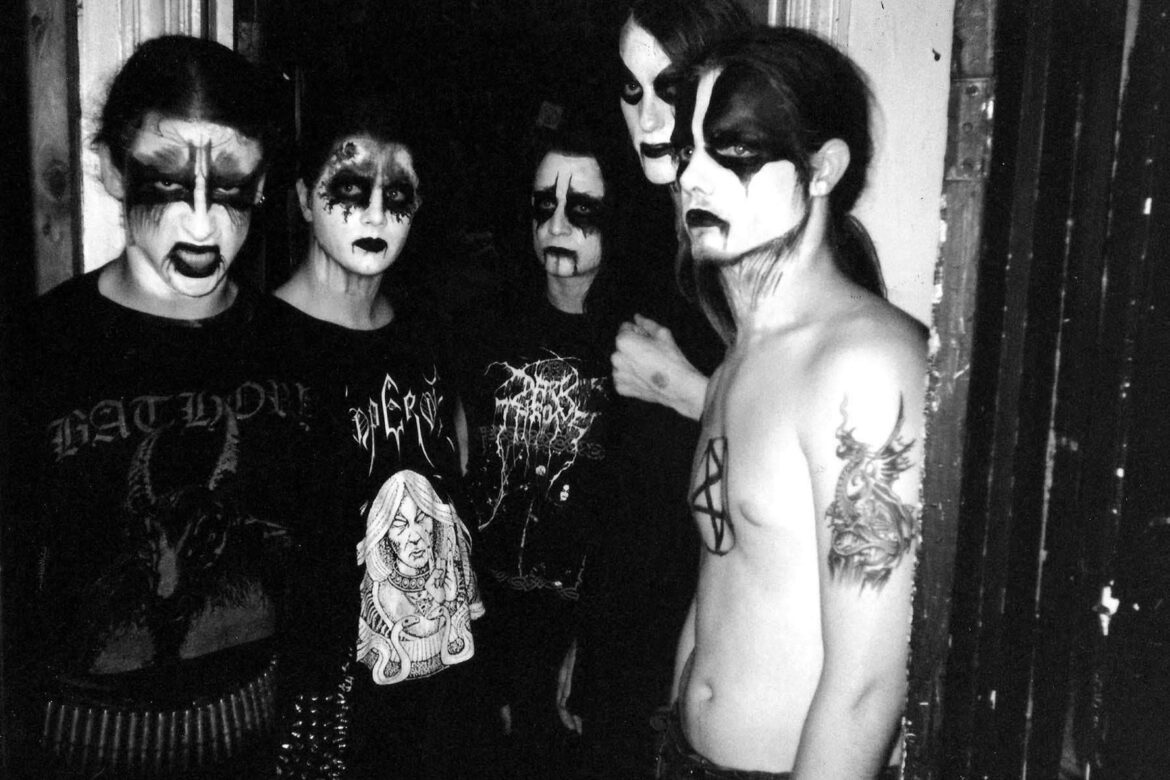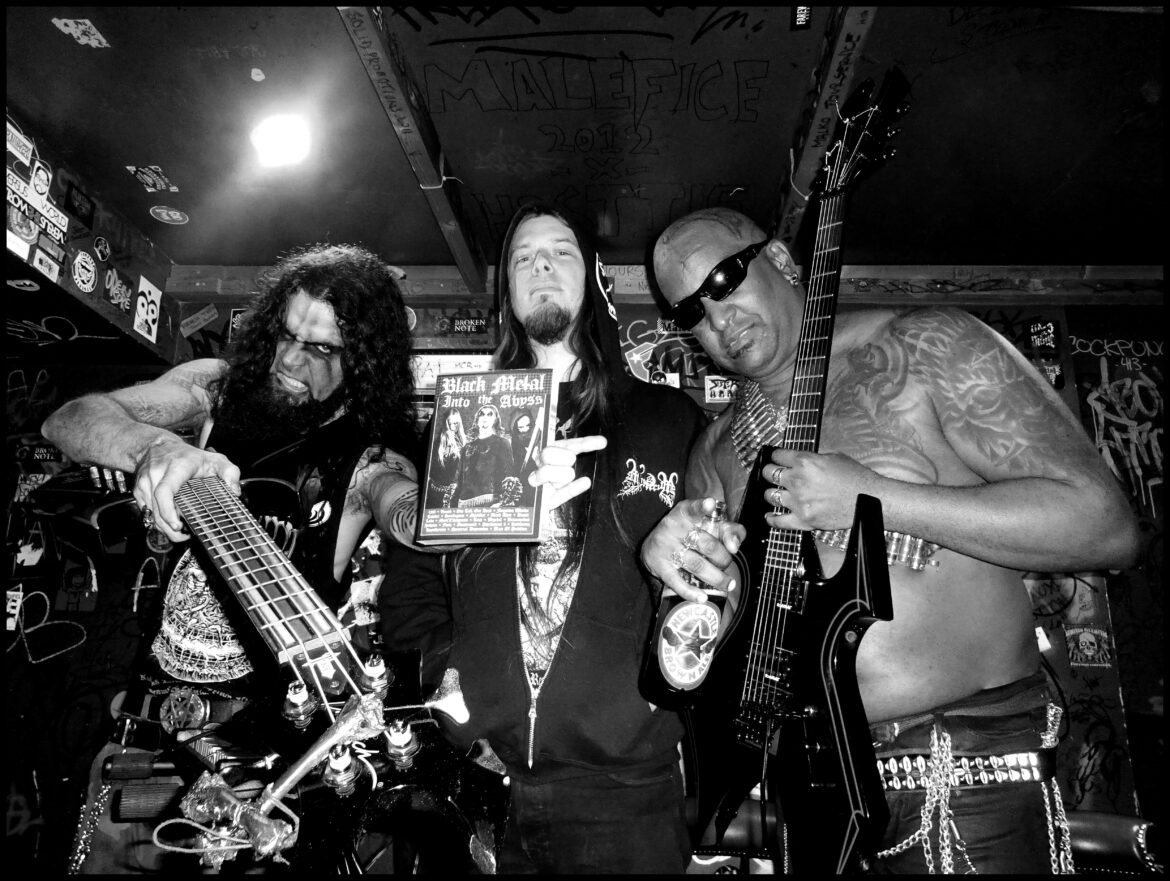
Dayal Patterson’s contribution to black metal cannot be overstated. It’s hard to think of any non-musician who’s done more for the style as a historian and devotee than this singular British author. His book, Black Metal: Evolution of the Cult, originally released in early 2014, filled in the essential gaps in knowledge and nuance left vacant by more sensational offerings and scattered magazine articles. Additionally, its success helped to establish the baseline for black metal knowledge. It’s the ideal reading companion for gaining a deeper understanding of the music. Since then, Dayal has established his book imprint, Cult Never Dies, as one of the publishing houses for extreme music — partnering with Decibel on multiple occasions.
And now he’s back with a new expanded edition of the book that started it all. Well, the word “expanded” really doesn’t cover it. As he says below, you can almost consider it an entirely new book. I’ve interview Dayal several times, and knew I had to get the details on this!
Oh, and by the way: Decibel is the exclusive North American distributor of Black Metal: Evolution of the Cult — Restored, Expanded & Definitive Edition, which is available for preorder now! The book is due to ship out in December.
Check out the interview below!
—
Congrats on the upcoming release of the updated edition of Black Metal: Evolution of the Cult. The book had a huge impact on me and my taste in metal, and I imagine it did the same for many readers. What made you decide to update the book? Why now?
I’ve actually been wanting to release the book like this more or less since it was released. My relationship to the original version is a bit complicated – on the one hand, I felt it was an important piece of work and was very happy for the positive feedback it received from readers and bands. And of course, it effectively made my own publishing house Cult Never Dies a possibility. But it was quite a long way from what I originally envisioned, both visually – the design has been infinitely improved on the new editions – and in terms of content, because the word count I had to work with (200,000 words) was not enough to include everything I felt needed to be there. The new edition is 340,000 words with 650 images, so it’s almost double the size of the original in terms of content.
In terms of timing, it was the 10th anniversary that prompted me to act. I’m quite amazed it has worked so neatly in that sense, the new edition coming out exactly one decade after the original. Buying back the rights was not a cheap – or financially sensible – move but it was one I needed to do for my own piece of mind, and once that had been achieved I threw myself into a year of working 12-14 hours a day to make this the best and most definitive book it could be.

What are some of the major changes and additions to the book? I’m sure everyone asks about Immortal, but there must other big names newly brought in as well.
There are 23 new chapters so there are thorough examinations of bands that were only mentioned in passing in the original, not only Immortal, but also Deathspell Omega, Vinterland, Profanatica, Hecate Enthroned, Arcturus, Satyricon, Mystifier, Necromantia, Absu, Impaled Nazarene and many more. But more than that, the original chapters have been rewritten and expanded with new interviews: So the Thorns chapter now features words from Marius Vold as well as new words from Snorre Ruch. The chapter on Arcturus has Marius and Sverd involved, rather than just Simen and Garm. The Burzum chapter has new quotes from more recent interviews with Varg I made. The chapter on the Black Legions has been fact-checked by Wlad of Vlad Tepes and includes many changes. The Dødheimsgard chapter has new interviews with Vicotnik. The Mysticum chapter has been completely rewritten to include new conversations with the various members, and so on. In some regards, I think this could justifiably be regarded as a new book, rather than just an expanded edition.
Did you revise anything beyond adding new content? Like grammar, style, etc. I’m sure you have a writer’s impulse to comb through your own work and say “Damn, if only I could change how I phrased that!”
Absolutely. A lot of the updating was down to rephrasing and restructuring. I was in my 20s when I wrote a lot of the original. I would like to think my writing has improved immeasurably since those times, and also my general understanding and eloquence!
When you conducted the new interviews for the revised versions, did anything stand out and surprise you? The Paul Ledney quote about Emperor made the rounds on the internet quite a bit.
A lot of the information and details are new. For example, I thought the original book was quite comprehensive in terms of its coverage of the Inner Circle and Helvete, but new interviews with people like Marius Vold, who was a co-owner of Helvete, really added a new dimension. Likewise, I learnt a lot about the Brazilian scene of the 1980s when writing that chapter, and even the UK scene when writing that part. To some extent, all the interviews have surprised me to varying extents, at least in the sense that I have discovered new things. At the root of it all, that is the reason for me to do these interviews and the book. I’ve been involved in black metal at some level for 30 years, so I’m hungrily seeking out new information and color, because if it’s new and interesting to me, it’s hopefully new and interesting to the reader.

The original edition of the book definitely changed your life, as you now run a premiere book publishing outlet for extreme metal. Did that momentum build up right after the book came out, or did it take a couple more releases to really get going? I remember being amazed at how quickly you put out The Cult Never Dies: Volume One after that.
Yes the release of the original Black Metal: Evolution of the Cult and, equally, the Black Metal: Prelude to the Cult companion book, released at the same time, launched the whole thing really. The first sequel you mention came out just over a year later, so things were really moving fast, and that point I had no staff and also had a part-time design job, so I’m surprised looking back just how fast it did move. Then again, the mail order store only had two books and three shirts during that time, so packing orders was a lot more straightforward than today. The release of Black Metal: The Cult Never Dies: Volume One is where things really kicked off, as it became clear then that it was possible to release a full-length book and achieve good sales and distribution and be a ‘proper’ publishing house, so to speak. The next year I released two full-length books – which was probably too ambitious looking back – and in 2017 I went full-time with Cult Never Dies, began employing people and also began releasing publications by other people, so it came together over that three year period really.
Obviously the release of this book is a big deal, but what are some other things you’ve got in the works? Would you do a book focused on the British black metal scene (thinking of some of our mutual friends in Cumbria)?
There will be a book on the British scene released on Cult Never Dies actually, although I will be editing and designing rather than writing. I think in general I will take a break from writing and focus on the backlog of book projects by other people that are due on Cult Never Dies for a year or so. I’ve been writing so intensely the last year that I feel like writing another book straight away, but it would be a bad idea – it’s very easy to try and fill the vacuum of one finished project with another, but it’s unhealthy I think. We have several new underground fanzine anthologies coming out, as well as an artbook with Christophe Moyen and another book on dungeon synth, so there’s a lot to be getting on with.
Since I’ve got you, I might as well ask, are there a few big standout black metal albums in 2023 that people should check out?
Man, I am absolutely the last person to ask about that. I’ve spent the last 12 months listening solidly to black metal from the last 40 years while writing this book, I am due for a major catch-up on anything released since mid-2022.


